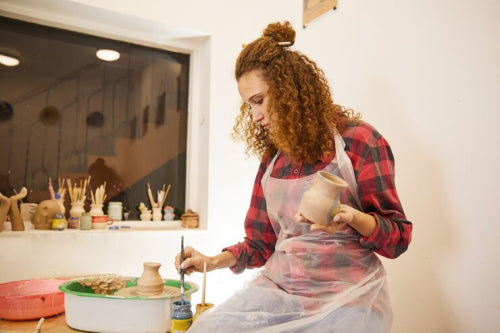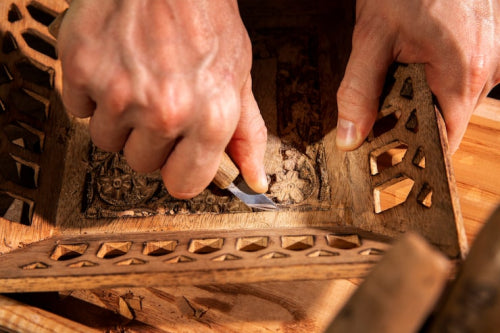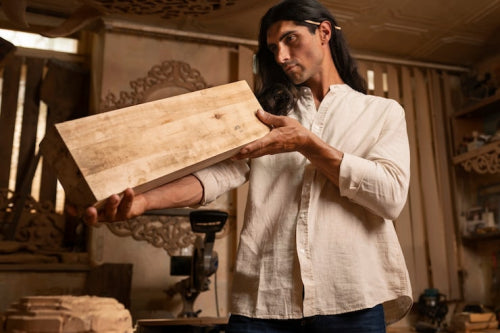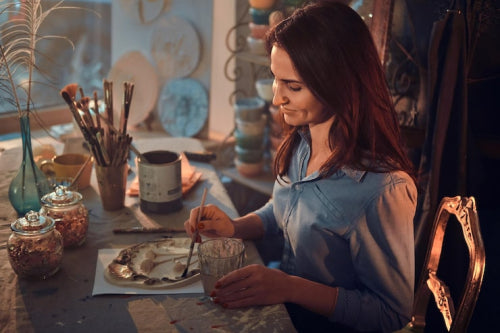Quick Listen:
Picture this: a sleek assembly line churning out identical chairs, each one indistinguishable from the last, destined for a fleeting life in some forgettable living room. Now contrast that with the deliberate stroke of a chisel against seasoned teak, guided by hands that have learned their craft over decades. In the furniture world, where mass production reigns supreme, the quiet defiance of local artisans stands as a beacon of authenticity and endurance. At the heart of MMC Wood Creations lies a profound dedication to these unsung heroes skilled makers who infuse every joint and curve with stories of heritage and human ingenuity. As the clamor for sustainable, meaningful living spaces grows louder, these artisans aren't just surviving; they're reshaping an industry, one heirloom at a time. Their work reminds us that true luxury isn't in the price tag but in the permanence of a piece that outlives trends and tells a tale across generations.
Mass-market furniture lacks heart, filling rooms with bland, short-lived pieces. Frequent breakdowns spark frustration, as replacements erode style and sentiment. At MMC Wood Creations, Udaipur artisans shape heirloom furniture with enduring craftsmanship and cozy elegance, creating pieces that echo your identity, ensuring your home radiates warmth and timeless connection. Shop Now!
The Resurgence of Handcrafted Furniture
The tide is turning decisively toward the handmade, and the numbers bear it out with unyielding clarity. The global arts and crafts market, encompassing everything from pottery to intricate woodwork, stood at a robust $44.6 billion in 2024 and is on track to balloon to $106.6 billion by 2034. This impressive trajectory, powered by a compound annual growth rate of 9.1% from 2025 onward, underscores a seismic shift in consumer priorities. People aren't just buying furniture anymore; they're investing in expressions of self personalized, one-of-a-kind items that whisper sustainability and shout individuality. At MMC Wood Creations, this isn't abstract theory; it's daily practice. Their artisans, drawing on time-honored techniques, produce tables and cabinets that feel alive, each scar in the wood a testament to ethical sourcing and meticulous care.
What fuels this explosion? It's a potent cocktail of cultural awakening and digital amplification. The resurgence of do-it-yourself projects, once a niche hobby, has evolved into a mainstream movement, encouraging consumers to value the handmade even more. Add to that the explosion of craft-centric social media, where creators share their processes in real time capturing the satisfying rasp of sandpaper or the satisfying click of dovetail joints and you've got a platform that democratizes artistry. These channels don't just showcase; they inspire, turning passive viewers into active supporters of artisans worldwide. For MMC, this means their pieces, like a hand-turned oak pedestal or a lattice-carved screen, resonate far beyond local workshops, finding homes in discerning spaces that prize narrative over novelty.
Yet this resurgence demands more than fleeting enthusiasm. It calls for a reckoning with what we've lost in our rush to efficiency. Industrial furniture, for all its affordability, often leaves a hollow echo beautiful in photos but soulless in use. Artisans counter this with pieces that age gracefully, developing patinas that record family gatherings and quiet evenings. In an era where environmental consciousness isn't optional, their commitment to local materials and low-waste methods aligns perfectly with the ethos of a market hungry for green alternatives. MMC Wood Creations embodies this ethos, partnering with suppliers who prioritize regenerative forestry, ensuring that every board foot contributes to a healthier planet.
Blending Tradition with Innovation
Tradition isn't a relic at MMC Wood Creations; it's a living foundation, rigorously upheld yet fearlessly evolved. Artisans here master the ancient art of joinery techniques like mortise-and-tenon that have bound wood for centuries while wielding contemporary tools that sharpen their edge. Computer numerical control machines, for instance, allow for precision cuts that free up time for the soul-stirring details: the subtle bevel on a drawer pull or the flowing grain match on a panel door. This fusion doesn't dilute heritage; it elevates it, enabling designs that marry the organic flow of traditional forms with the crisp geometry of modern minimalism.
Consider the broader landscape: the global handicrafts market, valued at $739.95 billion in 2024, is set to climb to $983.12 billion by 2030, expanding at a steady 4.9% CAGR. Woodwork, commanding a commanding 26.71% share, leads this charge, driven by an insatiable appetite for items that carry cultural weight and ecological integrity. Consumers, weary of the environmental toll of fast furniture, flock to these offerings, which promise longevity over disposability. MMC's artisans respond by innovating within bounds experimenting with hybrid finishes that blend natural oils with UV-resistant coatings, or incorporating smart elements like hidden charging ports without compromising the handcrafted aesthetic.
Sustainability, that buzzword turned imperative, permeates every facet of this blend. By sourcing from community-managed forests and employing zero-waste carving methods, MMC minimizes its footprint while maximizing impact. This isn't greenwashing; it's ingrained philosophy, reflected in pieces that endure. A sustainably harvested mahogany console, for example, not only adorns a room but also supports biodiversity initiatives upstream. As the Asia Pacific region, holding a 34.81% revenue slice in 2024, continues to dominate, and the U.S. surges ahead with a 3.7% CAGR, MMC positions itself as a bridge exporting not just wood, but wisdom from traditions that have stewarded resources for millennia.
Innovation here is measured, deliberate. Artisans collaborate on prototypes, iterating with sketches and prototypes until the balance feels right. It's this rigor that sets MMC apart, ensuring that technology serves the craft rather than supplanting it. The result? Furniture that feels timeless yet timely, inviting touch and evoking memory in equal measure.
Stories in Every Grain
Step into the sun-dappled workshops of MMC Wood Creations, and the air thickens with the scent of fresh shavings and aged timber. Here, the symphony of creation unfolds: the steady thrum of lathes, the precise whisper of planes, the animated exchange of elders schooling apprentices in the arcane language of wood. One collaboration shines brightly a series of bespoke wardrobes drawing from the opulent motifs of Mughal architecture, rendered in sheesham with inlays of brass and bone. These aren't mere storage solutions; they're portals to history, each panel a canvas where floral arabesques dance in perpetual bloom.
Such endeavors thrive on deep-rooted partnerships, where MMC invests in artisan's expertise to yield collections that captivate global palates. In the U.S., where handicrafts are projected to grow at that brisk 3.7% clip through 2030, these Indian-inspired marvels command premium prices, their allure lying in the authenticity that factory mimics can't touch. Rajasthani latticework on a daybed, or Kerala boat-carved motifs on a hall bench these elements transport owners to distant bazaars, fostering a tactile connection to cultures half a world away.
This isn't isolated success; it's emblematic of a worldwide reverence for handcrafted Indian furniture, prized for its textural depth and narrative richness. Yet MMC's edge lies in traceability: every piece comes with a ledger of its making, from the felling of the tree to the final polish, honoring the hands that shaped it. As traditional craftsmanship emerges as the most visceral embodiment of intangible cultural heritage, MMC safeguards it by prioritizing skills over artifacts fostering apprenticeships that transmit knowledge within communities, much like the Zafimaniry woodcarvers of Madagascar.
These stories extend beyond aesthetics. They weave economic threads, bolstering rural economies where artisans once toiled in obscurity. By spotlighting regional variations from the bold carvings of Gujarat to the refined veneers of Tamil Nadu MMC not only preserves diversity but amplifies it, turning local lore into global legacy.
The Challenges of Craft at Scale
For all its poetic allure, the artisan path is fraught with thorns. Scaling without erosion demands Herculean discipline; what works in a single workshop strains under volume. MMC confronts this head-on, balancing bespoke runs with semi-standard lines, yet the clock ticks mercilessly. Sourcing premium hardwoods, say, can delay a commission by weeks, clashing with the instant gratification era. In a market skewed toward bargain-bin imports, where mass production undercuts on price, handcrafted wares must justify their worth through superior durability and design a pitch that resonates but doesn't always close the deal swiftly.
Deeper still lurks the specter of obsolescence. Younger talents, lured by silicon valleys over sawdust floors, shun the apprenticeship grind, leaving a void in mastery. Intangible cultural heritage, fragile amid globalization's gales, hinges on this transmission the oral lore, the muscle memory passed from elder to novice. UNESCO warns of its role in cultural diversity, urging dialogue that respects varied lifeways. Without intervention, skills fade, heirlooms become rarities, and the market's projected vigor rings hollow.
Market pressures compound this: tariffs and trade skirmishes, as noted in recent analyses, ripple through supply chains, hiking costs for imported tools or exotic woods. The arts and crafts sector, pegged at $44.47 billion in 2024 with North America at the helm, navigates these waters warily, its emphasis on handcraft over mechanized output a double-edged sword. MMC mitigates by localizing where possible, but the global dance remains intricate, demanding agility without compromise.
Even UNESCO's accolades, while prestigious, don't always deliver. As seen in Bangladesh's celebrated rickshaw art and weavings, recognition sparks buzz but often bypasses the maker middlemen siphon gains, leaving artisans in penury. MMC counters with fair-trade models, direct payouts, and skill-building, yet the systemic hurdles persist, a stark reminder that preservation is as much economic battle as cultural vigil.
Opportunities in a Craft-Driven Future
Amid the grit, glimmers abound. Artisanship carves MMC a moat in the commoditized fray exclusivity as currency, where a live-edge slab bears the thumbprint of its shaper. This niche magnetizes the discerning: urban professionals curating sanctuaries of sentiment, eco-advocates championing low-impact luxury. Leaning in, MMC eyes expansions into experiential retail, where buyers witness the craft unfold, forging bonds that transcend transactions.
Economically, the ripple effects are profound. Empowering artisans sustains villages, injecting vitality into locales where migration once drained talent. Socially, it kindles pride, as communities behold their motifs on international stages. Echoing UNESCO's spotlights on crafts like Jamdani, MMC ensures benefits flow downward stipends, markets, advocacy transforming acclaim into action.
Looking ahead, the handicrafts boom portends partnerships: collaborations with designers, certifications for sustainable woods, digital twins for virtual previews. For MMC, this means scaling smartly hubs that train multiples without homogenizing, tech that traces provenance blockchain-style. The prize? A market not just growing, but growing wiser, where craftsmanship isn't niche but norm.
A Legacy Worth Preserving
In the grand sweep of the furniture saga, artisans emerge as indispensable stewards, their tenacity the thread binding past to promise. MMC Wood Creations, with its unwavering alliance to these guardians, charts a course where tradition fuels tomorrow's triumphs. Equilibrium is key: revering the unhurried poetry of handwork while harnessing tools that broaden its reach. As projections affirm a vibrant ascent arts and crafts doubling, handicrafts nearing the trillion mark the imperative sharpens: invest in these lineages, lest we forfeit the very uniqueness that defines us.
Pause, then, over your next furnishing choice. Beyond the gleam, seek the grain's secret the labor, the lineage, the life etched therein. In MMC's realm, and the artisans they exalt, resides a truth enduring: amid the machined mundane, the handmade endures as humanity's finest retort. One stroke, one seam, one saga enduring.
Frequently Asked Questions
Why is handcrafted furniture more expensive than mass-produced furniture?
Handcrafted furniture costs more because it requires skilled artisans, premium materials, and time-intensive traditional techniques like mortise-and-tenon joinery. Each piece is individually made using sustainable hardwoods and carries unique stories in its grain, unlike mass-produced items that prioritize speed over quality. The investment reflects superior durability, authentic craftsmanship, and the preservation of cultural heritage that will last generations.
What makes handcrafted wooden furniture more sustainable than factory-made pieces?
Handcrafted wooden furniture promotes sustainability through local material sourcing, zero-waste carving methods, and partnerships with community-managed forests that support biodiversity. Unlike fast furniture that contributes to environmental waste, artisan-made pieces are built to last generations, developing beautiful patinas over time rather than ending up in landfills. This approach supports regenerative forestry practices and reduces the carbon footprint associated with mass production and long-distance shipping.
How do local artisans blend traditional woodworking techniques with modern technology?
Local artisans masterfully combine ancient joinery methods with contemporary tools like computer numerical control machines for precision cuts. This fusion allows them to maintain traditional craftsmanship while improving efficiency freeing up time for detailed work like hand-carved bevels and grain matching. The result is furniture that honors centuries-old techniques while meeting modern design standards and sustainability requirements.
Disclaimer: The above helpful resources content contains personal opinions and experiences. The information provided is for general knowledge and does not constitute professional advice.
You may also be interested in: Chairs
Mass-market furniture lacks heart, filling rooms with bland, short-lived pieces. Frequent breakdowns spark frustration, as replacements erode style and sentiment. At MMC Wood Creations, Udaipur artisans shape heirloom furniture with enduring craftsmanship and cozy elegance, creating pieces that echo your identity, ensuring your home radiates warmth and timeless connection. Shop Now!
Powered by flareAI.co




